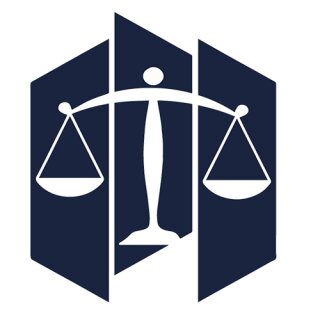Best Family Lawyers in North Bay
Share your needs with us, get contacted by law firms.
Free. Takes 2 min.
Free Guide to Hiring a Family Lawyer
List of the best lawyers in North Bay, Canada
Canada Family Legal Questions answered by Lawyers
Browse our 1 legal question about Family in Canada and read the lawyer answers, or ask your own questions for free.
- Hi there,I've been separated for 20yrs,would like to get divorced,
- What's the procedure, or legalities I'm facing, an how can you help?
-
Lawyer answer by mohammad mehdi ghanbari
Hello, Thank you for reaching out. I understand that navigating a divorce after a long period of separation can be a challenging and uncertain process, and I can offer some general guidance on the matter. General Divorce Procedure The first...
Read full answer
Canada Family Legal Articles
Browse our 1 legal article about Family in Canada written by expert lawyers.
- How to File for Divorce in Canada: A Step-by-Step Guide
- Family law in Canada covers separation, divorce, parenting, child support, spousal support, and property division, with rules split between federal law (Divorce Act) and provincial or territorial laws. You do not need a court order to separate, but you do need a court-issued divorce to legally end a marriage and... Read more →
About Family Law in North Bay, Canada
Family law in North Bay, Ontario, encompasses a wide range of legal issues related to familial relationships, such as marriage, divorce, child custody, child and spousal support, adoption, and property division. Governed primarily by provincial and federal legislation, family law aims to resolve disputes and ensure the well-being of all parties involved, especially children. The Family Court of the Superior Court of Justice in North Bay handles most family-related matters, offering resources and mechanisms for both contested and uncontested cases.
Why You May Need a Lawyer
Many situations may arise where seeking legal advice from a family lawyer is important. Common scenarios include:
- Considering a divorce or legal separation
- Disputes over child custody and access (parenting time)
- Negotiating or modifying child or spousal support payments
- Dividing property or debts after the end of a relationship
- Paternity or adoption matters
- Experiencing domestic violence or needing protection orders
- Drafting cohabitation, marriage, or separation agreements
A family lawyer can help you understand your rights, guide you through complex procedures, ensure your interests are protected, and represent you in court if necessary.
Local Laws Overview
Family law matters in North Bay are primarily governed by the Ontario Family Law Act, the federal Divorce Act, and related statutes. Key aspects include:
- Marriage and Divorce: The Divorce Act governs divorce proceedings, while the Family Law Act applies to common-law partners and married couples regarding property and support issues.
- Child Custody and Access: Decisions are based on the best interests of the child. Terms have shifted to "parenting time" and "decision-making responsibility."
- Support: Both parents have a legal obligation to support their child financially. Spousal support may also be awarded based on need and circumstance.
- Property Division: In Ontario, married spouses are entitled to an equalization of net family property, while different rules apply for common-law couples.
- Domestic Violence: The law provides mechanisms for protection, including restraining orders and exclusive possession of the family home.
- Alternative Dispute Resolution: Mediation and collaborative law are encouraged to resolve disputes outside of court whenever possible.
Frequently Asked Questions
What is the difference between divorce and separation?
A divorce legally ends a marriage, requiring a court order, whereas separation simply means that spouses are living apart. Separation applies to both married and common-law couples and does not need a formal agreement, although it can help clarify important issues.
How is child custody decided in North Bay?
Child custody, now referred to as "decision-making responsibility," is determined based on the best interests of the child. Courts look at various factors, including each parent’s relationship with the child, stability, and the child’s own wishes depending on age and maturity.
What should I do if I experience domestic violence?
If you're facing domestic violence, your safety is the top priority. Contact local law enforcement or crisis services. You may apply for a restraining order or exclusive possession of the family home through the court, often with the assistance of a lawyer.
Do I need to go to court to settle family law issues?
Not always. Many family law matters can be resolved through negotiation, mediation, or collaborative law. However, if an agreement cannot be reached or issues of safety arise, court intervention may be necessary.
How is property divided after a separation or divorce?
For married couples, property accumulated during the marriage is divided to ensure equalization of net family property. For common-law couples, property rights are less extensive unless jointly owned property or agreements exist.
What are my rights as a common-law partner?
Common-law partners do not have the same property rights as married couples in Ontario but may claim support or an interest in property through trust claims based on contributions to the relationship.
How is child support calculated?
Child support is typically calculated using the Federal Child Support Guidelines, which consider the payor's income and the number of children. The court ensures the child's needs are met fairly.
Can parenting arrangements be changed after court orders?
Yes. If there is a material change in circumstances (such as relocation or a significant change in a parent’s situation), you may request the court to vary the parenting order.
How long does a divorce take in North Bay?
Uncontested divorces can often be finalized in a few months, while contested cases involving complex issues can take a year or more. Timelines depend on court availability, case complexity, and whether parties use alternative dispute resolution.
Is legal aid available for family law matters?
Yes. Legal Aid Ontario provides assistance to eligible individuals, especially for urgent matters like child custody, domestic violence, or child support. You should check eligibility requirements and available services.
Additional Resources
Several organizations and governmental bodies can provide guidance and support for family law issues in North Bay:
- Family Court (Superior Court of Justice, North Bay): Handles all family law matters, including divorce, custody, and support.
- Legal Aid Ontario: Offers free or low-cost legal assistance for those who qualify.
- North Bay Family Court Support Worker Program: Provides assistance to individuals affected by domestic violence navigating the family law system.
- Ontario Ministry of the Attorney General: Provides family law information, court forms, and online resources.
- Mediation Services: Available for those seeking alternative dispute resolution, including local Family Mediation Services.
- Law Society of Ontario: Offers a lawyer referral service if you need to find a qualified family lawyer.
Next Steps
If you require legal help in a family law matter:
- Determine if you need legal representation, especially for complex or contested issues.
- Collect all relevant documents (marriage certificates, financial records, prior court orders).
- Contact a local family lawyer or use the Law Society of Ontario’s referral service for a free consultation.
- If eligible, apply for legal aid or seek mediation services for a more amicable resolution.
- Consider reaching out to community organizations for additional support, especially in cases involving domestic violence or urgent matters.
- Prepare a list of questions and concerns for your first meeting with a lawyer or support worker.
Remember, navigating family law can be challenging and emotional, but numerous local resources and legal professionals are available in North Bay to help you through the process.
Lawzana helps you find the best lawyers and law firms in North Bay through a curated and pre-screened list of qualified legal professionals. Our platform offers rankings and detailed profiles of attorneys and law firms, allowing you to compare based on practice areas, including Family, experience, and client feedback.
Each profile includes a description of the firm's areas of practice, client reviews, team members and partners, year of establishment, spoken languages, office locations, contact information, social media presence, and any published articles or resources. Most firms on our platform speak English and are experienced in both local and international legal matters.
Get a quote from top-rated law firms in North Bay, Canada — quickly, securely, and without unnecessary hassle.
Disclaimer:
The information provided on this page is for general informational purposes only and does not constitute legal advice. While we strive to ensure the accuracy and relevance of the content, legal information may change over time, and interpretations of the law can vary. You should always consult with a qualified legal professional for advice specific to your situation.
We disclaim all liability for actions taken or not taken based on the content of this page. If you believe any information is incorrect or outdated, please contact us, and we will review and update it where appropriate.
Browse family law firms by service in North Bay, Canada
North Bay, Canada Attorneys in related practice areas.









